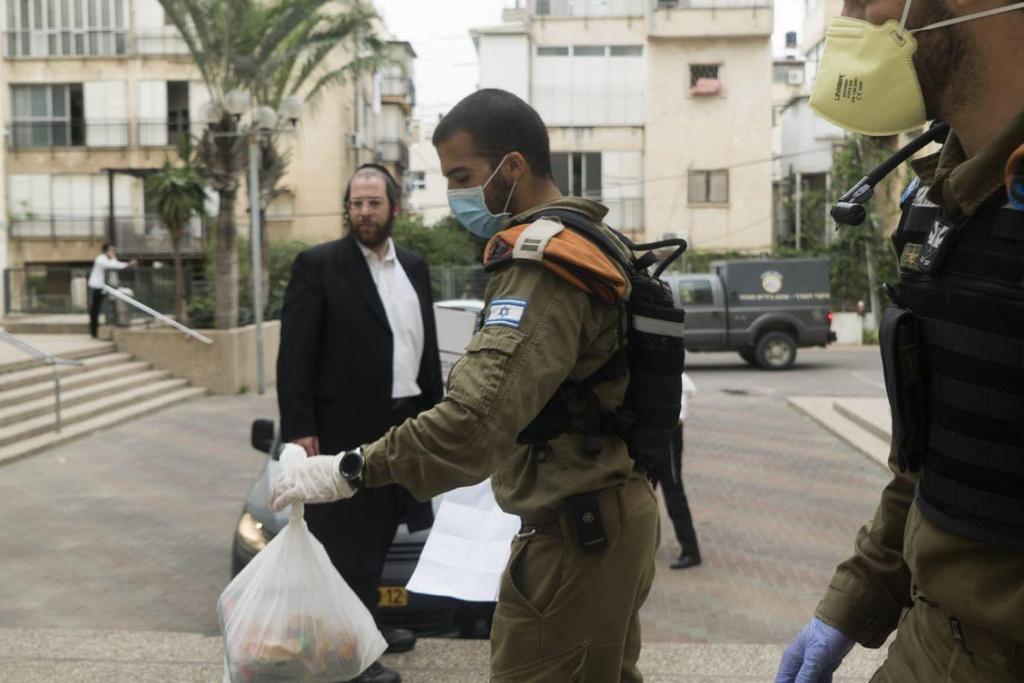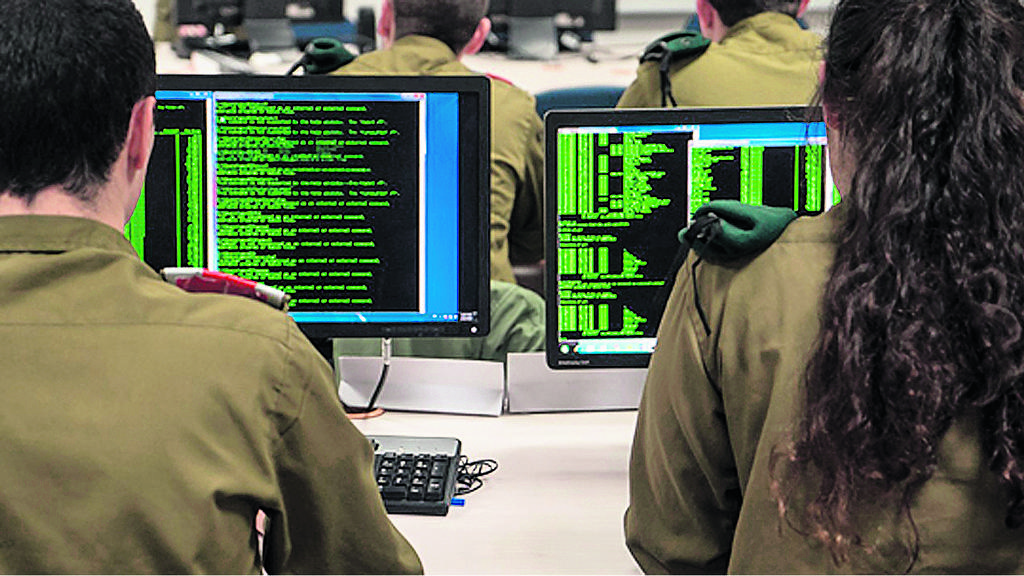Israel has drafted some of its finest military minds to wage war on coronavirus, with members of the elite 8200 intelligence unit assisting the Health Ministry with efforts to stem the spread of the disease.
At least 15 intelligence officers from famed unit have been deployed to work alongside health officials at a specially erected compound near Sheba Medical Center in the center of the country.
"The Health Ministry asked us to join the fight against the coronavirus," says an unnamed senior officer in the unit, adding that they are "analyzing data using our methodology."
Another 300 members of the unit are also supporting the efforts while also continuing their duty analyzing data related to the Lebanese-based terror group Hezbollah, the Iranian Quds Force and Hamas in Gaza.
"We were asked by the ministry to determine why coronavirus deaths in Germany remain low though the number of confirmed cases is high and continuing to grow, how South Korea managed to flatten the curve and what the results of measures taken by other countries are," says the officer.
"We were also asked about the situation in the Palestinian Authority and what research into coronavirus cures is being done around the world."
Each question goes to a dedicated team that collects data, analyzes it and prepares a report.
"More complex questions are analyzed using algorithms we normally use for military purposes, which enables a quick response," the officer says.
"We view the rate of infection in Israel through our sophisticated tools and could warn authorities that we are nearing the rates seen in Italy at the start of the pandemic and could point to factors that give room for optimism."
Israel's Military Intelligence is also coordinating with counterpart agencies around the world and has reached out to medical researchers working on inoculation based on antibodies collected from people who have recovered from COVID-19.
The members of unit were surprised by the basic technological capabilities of the Health Ministry, which uses a dated computer system and archaic work methods, compared to the abilities at their disposal.
They found that each institution - hospitals, the Health Ministry, laboratories, health maintenance organizations and Magen David Adom rescue service - kept its data separate.
3 View gallery


IDF troops from the Home Front Command distribute food during the coronavirus crisis
(Photo: IDF Spokesperson's Unit)
As such, one of the first tasks assigned to the team was establishing a software package that would allow all healthcare providers to share their data in real time.
"In normal times, not during a war like now, nothing happens if a file transferred from organization to another arrives tomorrow or the next day," the officer says.
"We immediately went in, developing fast connectivity, data retrieval and a uniform [system] that reliably transmits testing information between the agencies."
The officer also had high praise for the medical staff who are on the front line of this war, and expressed the hope that the technological systems they use will soon get the funding they need.
"They are wonderful, dear healthcare professionals who do their best," he says.
"This is a system that has not received the same budgeting that the defense system has received over the years, but they can and will improve."



